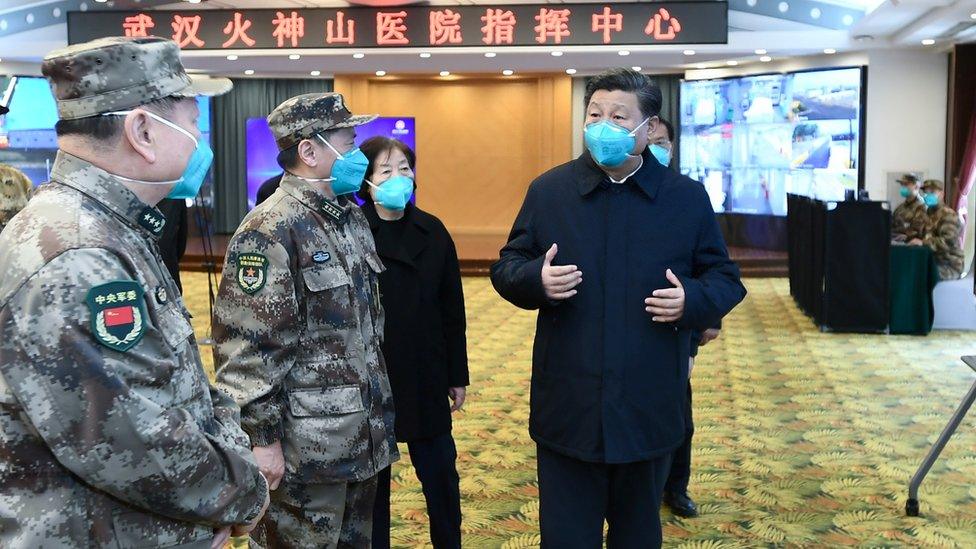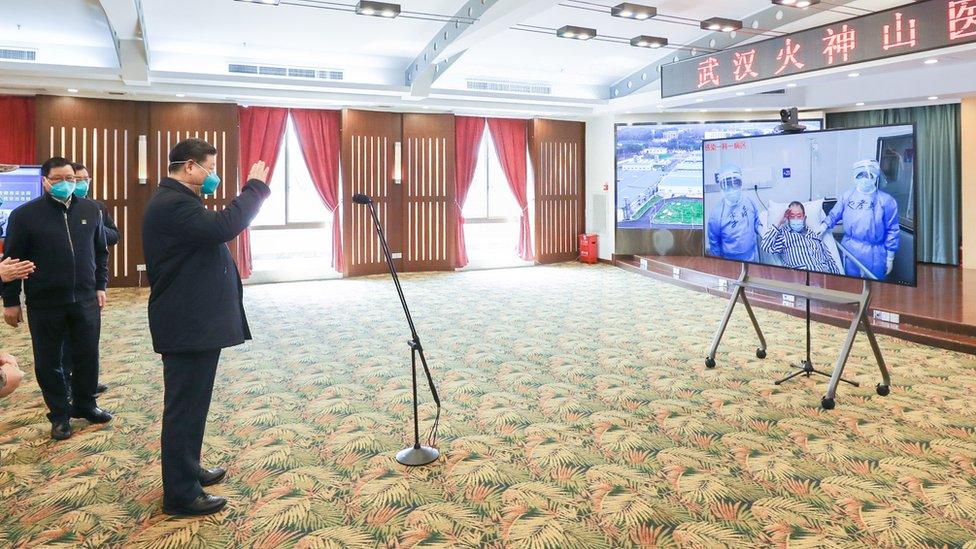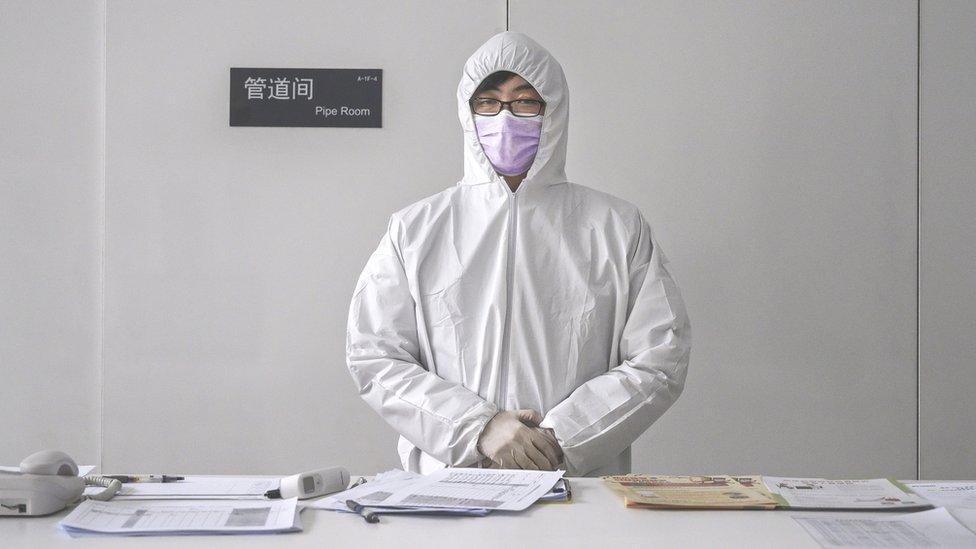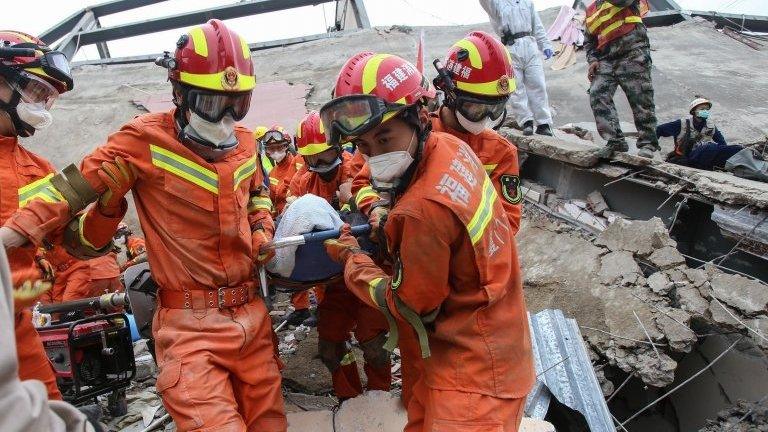Coronavirus: China says disease 'curbed' in Wuhan and Hubei
- Published

President Xi Jinping said the virus had been successfully tackled in Wuhan and Hubei province
President Xi Jinping has visited the city of Wuhan, the centre of the coronavirus outbreak, sending a message that Beijing has the situation under control.
His visit comes as China recorded its lowest number of infections, just 19 on Tuesday, all in Wuhan apart from two who had arrived from overseas.
China has seen 80,754 confirmed cases, 3,136 of whom have died.
The visit was Mr Xi's first trip to the city since the outbreak began.
According to state media, Mr Xi arrived in Wuhan on Tuesday to inspect epidemic prevention and control work in the province.
Wuhan and its province, Hubei, have been locked down in order to prevent the spread of the disease. The president visited a community in the city currently in self-quarantine.
During his visit, Mr Xi declared that the spread of the disease had been "basically curbed" in Hubei province and Wuhan.
"Initial success has been made in stabilising the situation and turning the tide in Hubei and Wuhan," he said.

EASY STEPS: What can I do?
A SIMPLE GUIDE: What are the symptoms?
IMMUNITY: Are women and children less affected?
MAPS AND CHARTS: Visual guide to the outbreak
VIDEO: How to self isolate

Chinese state media quoted analysts as saying Mr Xi's visit had sent a "strong signal to the entire country and the world that China is ascending out of the darkest moment amid the outbreak".
The president also visited Huoshenshan hospital, a temporary facility that was completed in 10 days. Images from his visit show the president speaking to staff and patients via video link.

The Chinese president spoke with patients and staff at Huoshenshan hospital
Shortly after his visit, state media confirmed that all 14 of the temporary hospitals in China had now been closed.
It is unclear how long Mr Xi will stay in the city.
Zhang Ming, a professor at Renmin University, told Reuters news agency: "He is there now to reap the harvest. His being there means the Communist Party of China (CCP) may declare victory against the virus soon."


Images of Communist Party General Secretary Xi Jinping visiting Wuhan will be seen as more than just reassuring to the people of China that the coronavirus emergency is now pretty much under control.
It is also like a nationwide green light.
It is a way of sending out a signal that the return to "normality" should carry on apace.
After all, if the most important person in the country now feels that it is safe enough to enter the belly of the monster then surely others can return to work in their own cities, most of which have seen zero new infections recently.
True, when Xi Jinping "visited" patients at the newly built Huoshenshan quarantine ward this was done via video link. However, you would hardly expect the country's leader to go up and give them a hug.
To see him just being in the city probably means that parts of Hubei will be opened up very soon with a resumption of transport links at least within the province, along with more shops opening their doors. Elsewhere in China, things are going to start moving much more quickly.

Mr Xi has been notably absent from Chinese state media coverage of the virus. However, CGTN said on Tuesday that Mr Xi had been "personally directing the disease prevention and control work".
His deputy, Premier Li Keqiang, visited Wuhan in January. Last week, Vice Premier Sun Chunlan visited a Wuhan housing community where she received a hostile reception from residents who claimed the area had been cleaned up for her visit.
As the number of infections rapidly decreases, there are signs that life in China is slowly returning to normal.

In Qinghai province, the first batch of 144 senior schools and secondary vocational schools reopened on Monday.
On Monday, state media said Tianhe Airport in Wuhan was preparing to reopen but no official date had been set.
Disneyland Shanghai says it has partially reopened. The main theme park is still closed but the shops and restaurants have reopened.
Schools and colleges in China have been closed for more than two weeks in the fight against coronavirus
- Published11 February 2020

- Published8 March 2020
